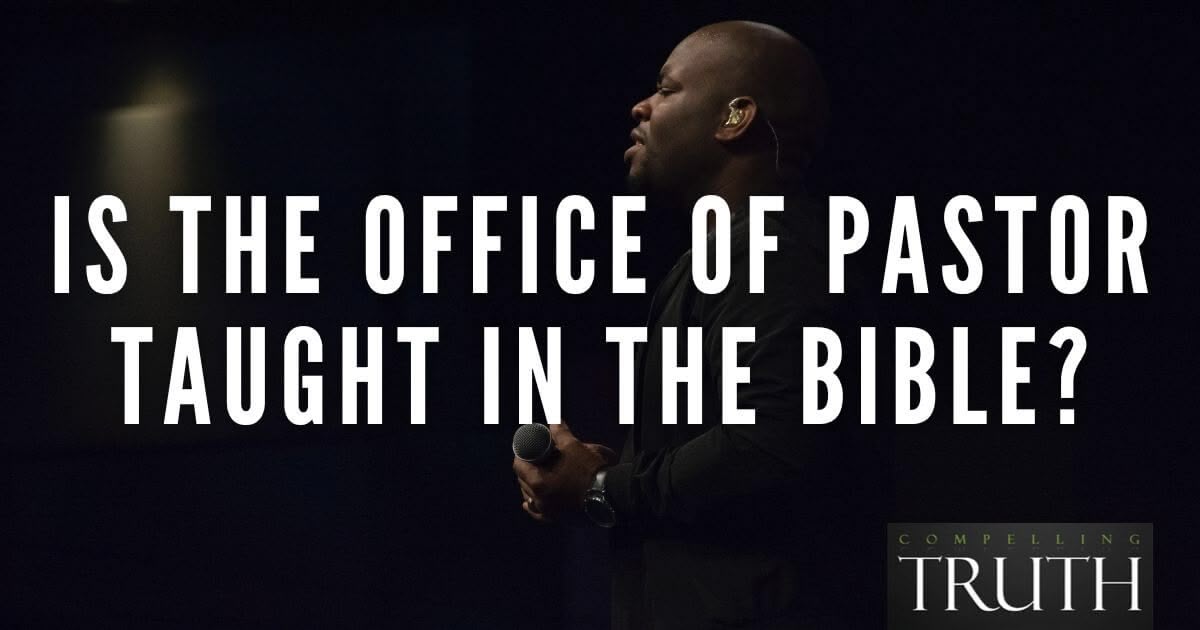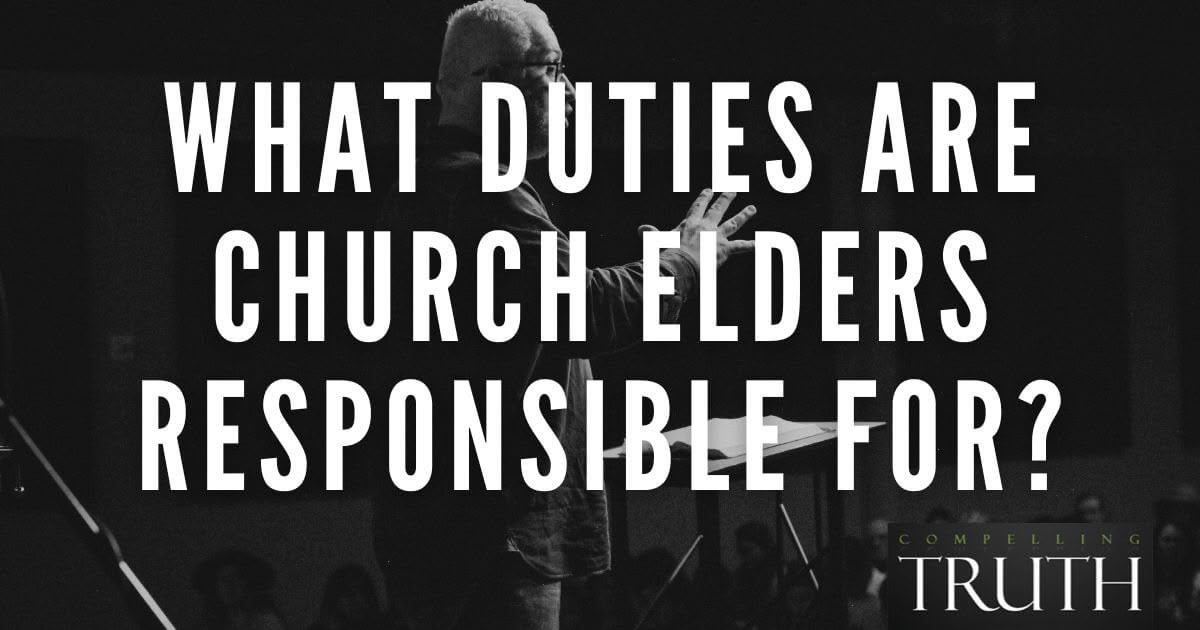Typically, when we think of a pastor, we think of the full-time leader of a congregation. Shepherding a church congregation is certainly a demanding task. Many pastors' days are consumed with preparing sermons, teaching, counseling members of the congregation, coordinating community outreach, and the like. Some pastors, however, for various reasons, also work either a part-time or full-time job outside of the church in order to meet their financial needs. There can be several reasons for this. Perhaps the church is unable to provide a livable salary for the pastor, as is the case in some smaller churches or in areas with a particularly challenging economy. Some churches hire pastors in a part-time role. Some pastors intentionally fill the role of pastor and maintain another profession to remain connected to the workforce outside the church. Today, these are sometimes called "marketplace pastors."
The Bible affirms the appropriateness of paying pastors for their ministry work. First Corinthians 9:14 says, "In the same way, the Lord commanded that those who proclaim the gospel should get their living by the gospel." First Timothy 5:17–18 says, "Let the elders who rule well be considered worthy of double honor, especially those who labor in preaching and teaching. For the Scripture says, 'You shall not muzzle an ox when it treads out the grain,' and, 'The laborer deserves his wages.'" Galatians 6:6 says, "Let the one who is taught the word share all good things with the one who teaches."
However, it is not always possible for those a pastor serves to fully provide for his financial needs. Rather than neglect the work of ministry or disregard God's call to serve, bi-vocational pastors choose to supplement their income with other work. While Paul was not a pastor, he was a bi-vocational missionary. Paul sometimes purposely chose not to receive money from those he served, as in Corinth (1 Corinthians 9:12–18; Acts 18:1–4). He did not want money to be a barrier to the gospel or to ministry.
Some see the appointment of what we now call "deacons" in Acts 6 as an argument against bi-vocational pastors. As the church was growing rapidly, there were those who felt they were being neglected in the distribution of necessities. The twelve apostles gathered all of the disciples together and chose seven men to take over this task saying, "It is not right that we should give up preaching the word of God to serve tables" (Acts 6:2). In other words, both preaching the Word of God and caring for the practical needs of the community of believers were necessary, and one should not be given up in place of the other. The apostles had an appointed task to spread the gospel and grow the church. They needed to focus on that primary task and thus specifically charged others with different aspects of ministry. But this says nothing about being a bi-vocational pastor. It simply emphasizes the importance of teaching the Word of God, caring for the needs of a congregation, and sharing the load of ministry work with others.
Second Timothy 4:2 emphasizes that a pastor must always be ready to preach the Word of God. This means that a pastor, whether full-time or bi-vocational, must make the study of God's Word and the preparation for teaching His Word a priority at all times. It is often easier for a full-time pastor to dedicate the time resources God has given him to preparing to teach His Word. A bi-vocational pastor must balance his other work obligations with the priority of God's Word. This is a difficult task to undertake and those who are capable of doing so are truly a blessing.
Many bi-vocational pastors find that their other job provides further opportunities for ministry as they meet and interact with others who might not otherwise have a connection to the church. Working another job might also give the bi-vocational pastor a greater understanding of the daily lives of his congregation. It could also give the congregation a deeper sense of connection with the pastor and a deeper appreciation for his service to the church. It could serve as an example and a challenge to be similarly committed to serving the church and the community. Church is not a spectator sport; ministry within and outside of a church is not reserved exclusively for those who are paid. Rather each member of a church plays an important role and should be actively involved and contributing to the mission of the church (Romans 12:3–8; 1 Corinthians 12:1–31; Galatians 6:1–10).
Peter gives this advice to pastors, "So I exhort the elders among you, as a fellow elder and a witness of the sufferings of Christ, as well as a partaker in the glory that is going to be revealed: shepherd the flock of God that is among you, exercising oversight, not under compulsion, but willingly, as God would have you; not for shameful gain, but eagerly; not domineering over those in your charge, but being examples to the flock. And when the chief Shepherd appears, you will receive the unfading crown of glory."
Similarly, Hebrews 13:17 encourages believers, "Obey your leaders and submit to them, for they are keeping watch over your souls, as those who will have to give an account. Let them do this with joy and not with groaning, for that would be of no advantage to you."
Peter's advice applies equally to full-time pastors and bi-vocational pastors, and the advice in Hebrews applies equally to all believers. We should do our best to support those who have been entrusted with leading our local congregations and teaching God's Word (Ephesians 4:11–16; 1 Timothy 5:17–18). Often this includes supporting them with finances. Always, it includes supporting them through prayer (1 Timothy 2:1).
The Bible affirms the appropriateness of paying pastors for their ministry work. First Corinthians 9:14 says, "In the same way, the Lord commanded that those who proclaim the gospel should get their living by the gospel." First Timothy 5:17–18 says, "Let the elders who rule well be considered worthy of double honor, especially those who labor in preaching and teaching. For the Scripture says, 'You shall not muzzle an ox when it treads out the grain,' and, 'The laborer deserves his wages.'" Galatians 6:6 says, "Let the one who is taught the word share all good things with the one who teaches."
However, it is not always possible for those a pastor serves to fully provide for his financial needs. Rather than neglect the work of ministry or disregard God's call to serve, bi-vocational pastors choose to supplement their income with other work. While Paul was not a pastor, he was a bi-vocational missionary. Paul sometimes purposely chose not to receive money from those he served, as in Corinth (1 Corinthians 9:12–18; Acts 18:1–4). He did not want money to be a barrier to the gospel or to ministry.
Some see the appointment of what we now call "deacons" in Acts 6 as an argument against bi-vocational pastors. As the church was growing rapidly, there were those who felt they were being neglected in the distribution of necessities. The twelve apostles gathered all of the disciples together and chose seven men to take over this task saying, "It is not right that we should give up preaching the word of God to serve tables" (Acts 6:2). In other words, both preaching the Word of God and caring for the practical needs of the community of believers were necessary, and one should not be given up in place of the other. The apostles had an appointed task to spread the gospel and grow the church. They needed to focus on that primary task and thus specifically charged others with different aspects of ministry. But this says nothing about being a bi-vocational pastor. It simply emphasizes the importance of teaching the Word of God, caring for the needs of a congregation, and sharing the load of ministry work with others.
Second Timothy 4:2 emphasizes that a pastor must always be ready to preach the Word of God. This means that a pastor, whether full-time or bi-vocational, must make the study of God's Word and the preparation for teaching His Word a priority at all times. It is often easier for a full-time pastor to dedicate the time resources God has given him to preparing to teach His Word. A bi-vocational pastor must balance his other work obligations with the priority of God's Word. This is a difficult task to undertake and those who are capable of doing so are truly a blessing.
Many bi-vocational pastors find that their other job provides further opportunities for ministry as they meet and interact with others who might not otherwise have a connection to the church. Working another job might also give the bi-vocational pastor a greater understanding of the daily lives of his congregation. It could also give the congregation a deeper sense of connection with the pastor and a deeper appreciation for his service to the church. It could serve as an example and a challenge to be similarly committed to serving the church and the community. Church is not a spectator sport; ministry within and outside of a church is not reserved exclusively for those who are paid. Rather each member of a church plays an important role and should be actively involved and contributing to the mission of the church (Romans 12:3–8; 1 Corinthians 12:1–31; Galatians 6:1–10).
Peter gives this advice to pastors, "So I exhort the elders among you, as a fellow elder and a witness of the sufferings of Christ, as well as a partaker in the glory that is going to be revealed: shepherd the flock of God that is among you, exercising oversight, not under compulsion, but willingly, as God would have you; not for shameful gain, but eagerly; not domineering over those in your charge, but being examples to the flock. And when the chief Shepherd appears, you will receive the unfading crown of glory."
Similarly, Hebrews 13:17 encourages believers, "Obey your leaders and submit to them, for they are keeping watch over your souls, as those who will have to give an account. Let them do this with joy and not with groaning, for that would be of no advantage to you."
Peter's advice applies equally to full-time pastors and bi-vocational pastors, and the advice in Hebrews applies equally to all believers. We should do our best to support those who have been entrusted with leading our local congregations and teaching God's Word (Ephesians 4:11–16; 1 Timothy 5:17–18). Often this includes supporting them with finances. Always, it includes supporting them through prayer (1 Timothy 2:1).



